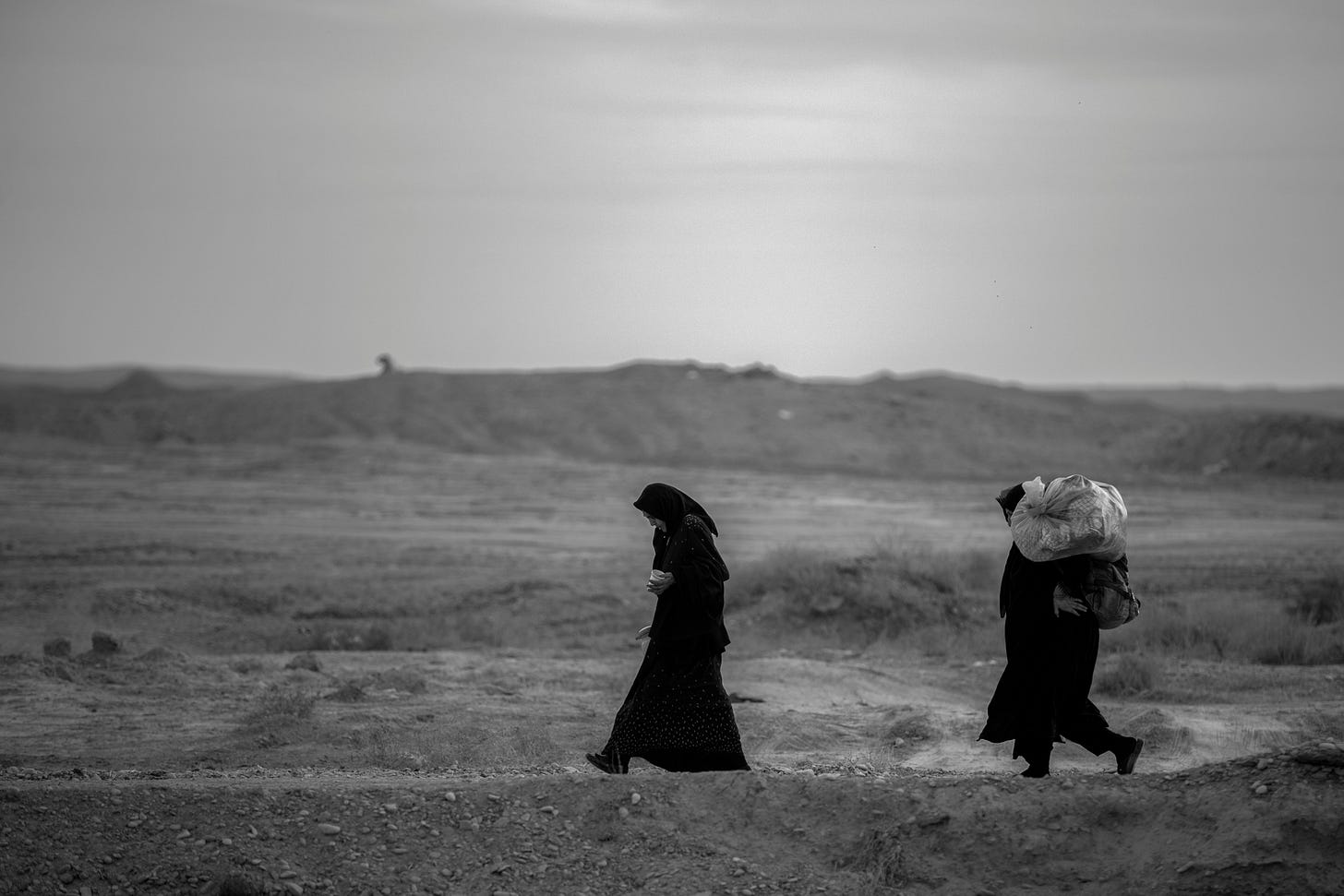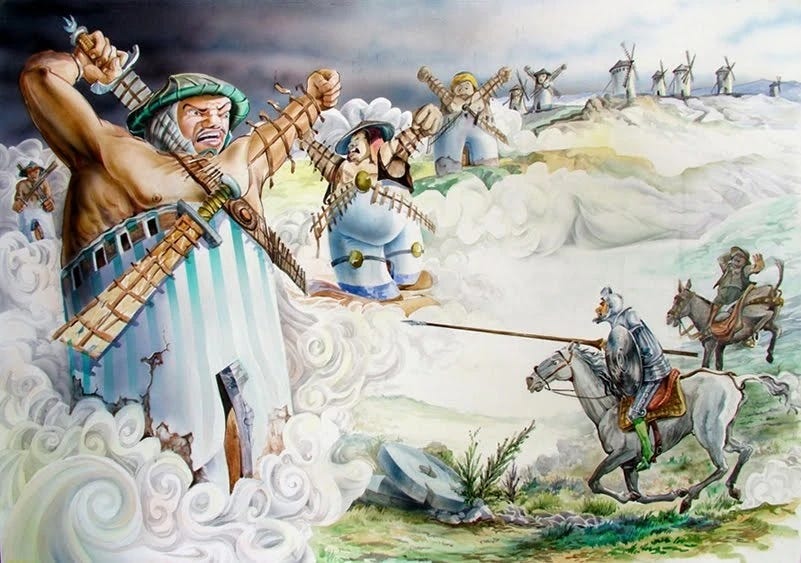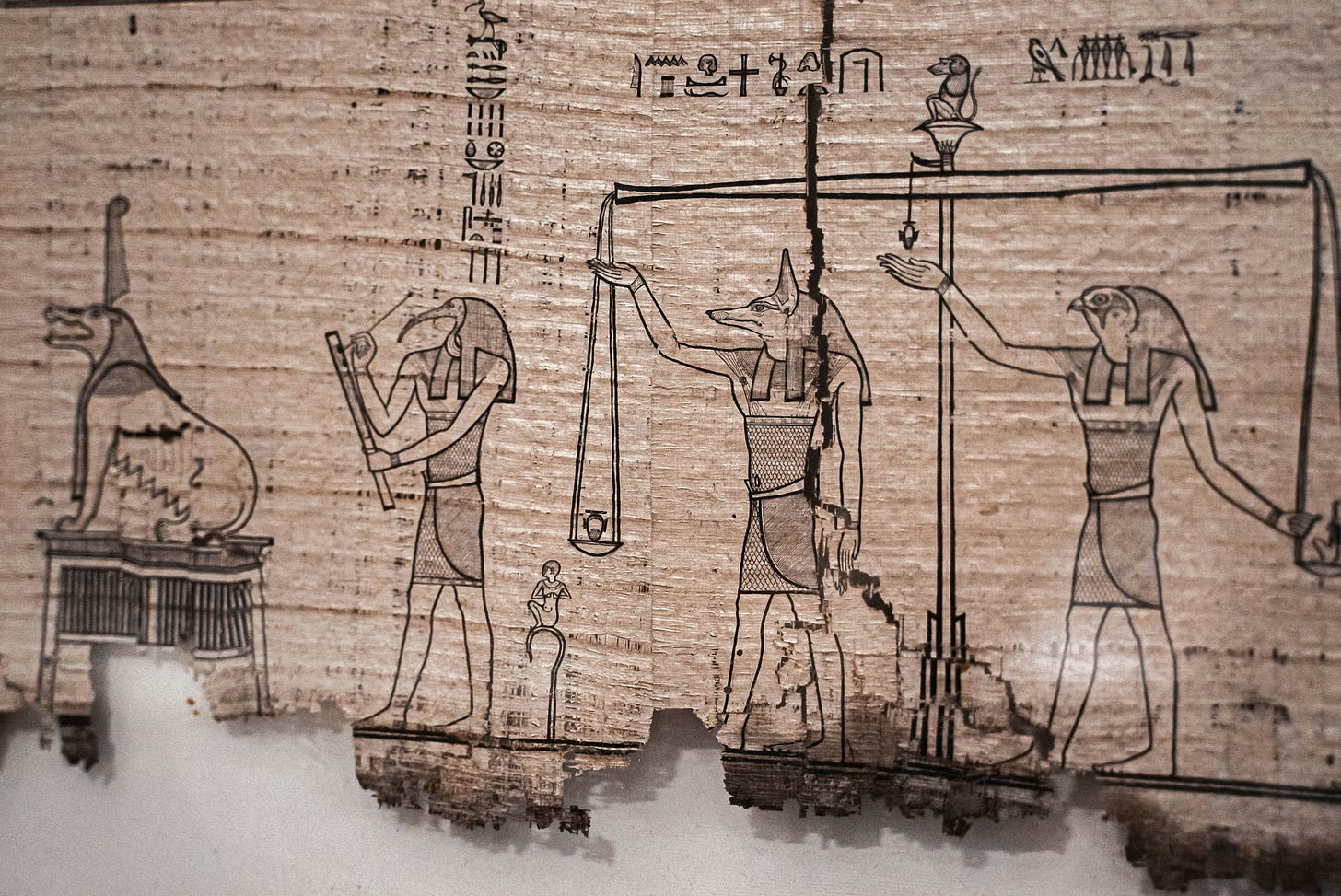Amplification Through Amputation | QMM #7
On Wheels, Writing and How Forecasting Consequences Can Induce Limit

Quixote’s Media Meditation’s #7
Assignment question: If we understood our older media, such as roads and the written word, and if we valued their human effects sufficiently, we could reduce or even eliminate the electronic factor from our lives.” What would that even look like?
If, in a pre-electric world, in the times of our ancestors, we valued the human effects of media such as roads and the written word, which is to say grasped their enduring causes and consequences, we might consciously inherit and understand the potential evolutions or inversions of said media. What?
Let me say it differently: if we sincerely valued technology and its place and protrusions among us, wouldn’t that value include understanding its lineage, uses, and possible abuses? Wouldn’t such a careful approach be implemented before a tool’s invention or distribution?
In the realm of effects, it seems that understanding the consequences of our media could enable us to honour their limits and remember the need for such limits.
Round and Round We Go, Where We Stop, Nobody Knows
For example, if we could comprehend, a priori, the shrinking of the world that roads invite, we might be able to reconsider their value. Roads don’t just shrink the travel time between places but between people. While transportation times drop as a result of not having to walk or ride a horse, the road invites new worlds. It paves the way not only for trade or tourism between cultures but also for the possibility of war and disease. As the road compresses the world, as that trajectory brings a global village theatre into our homes and hands, the lack of boundaries means the consequences bypass customs and we’re left to contend with them, often unaware or unprepared.
In 1964, Marshall McLuhan highlighted this in Understanding Media: The Extensions of Man:
“Improvement of wheel and road more and more brought the town to the country in a reciprocal spongelike action of give-and-take… Great improvements in roads brought the city more and more to the country.
…With superhighways the road became a wall between man and the country. Then came the stage of the highway as city, a city stretching continuously across the continent, dissolving all earlier cities into the sprawling aggregates that desolate their populations today.”
In the bag of tricks which we might call media consequences, we can wonder about the past and how informs the present. We can craft and inquire, as McLuhan did, through deep time. For example, what were the infant consequences of the wheel as a child of the road? What did people suddenly see, imagine, and forget once the round disk rotated on the ground? Why might it be that Mesoamerican civilizations (probably) refused the wheel’s fabrication and diffusion, despite having the blueprint and models (in the form of toys) to do so?
Marshall, in Understanding Media, has this to say (about the wheel in general):
“…in the case of the wheel as an extension of the foot, the pressure of new burdens resulting from the acceleration of exchange by written and monetary media was the immediate occasion of the extension or “amputation” of this function from our bodies.”
In other words, the wheel not only augmented human movement but knowledge exchange and commerce. Amplification through amputation.
“The wheel as a counter-irritant to increased burdens, in turn, brings about a new intensity of action by its amplification of a separate or isolated function (the feet in rotation). Such amplification is bearable by the nervous system only through numbness or blocking of perception. This is the sense of the Narcissus myth.”
Among cultures that refused the diffusion of the wheel, we see the possible recognition of the wheel’s long-term consequences in utero. That is, a capacity to imagine the effects of the wheel without it being manufactured or applied yet. In such a case, we can postulate that the people who might’ve been tasked with such intensive forward-thinking and future-oriented consternation might have contended with the consequences of the wheel in terms of carrying capacity and all the branching possibilities that the wheel on the road might’ve drawn out or brought in.
Not just more roads or travel, but less social cohesion as a result of foreign influence. Not merely more vehicles, but less walking and less slowness. Not simply a round, rotating disk or more time on people’s hands, but the conceptual basis for the mechanical clock (and the alteration of local time). Not just a car or cart or carriage, but a war chariot, as McLuhan notes.
(My imagination drifts off to into the realms of Cervantes here, where our honourable Don Quixote “tilts at windmills,” a phrase which has come to mean “attacking imaginary enemies.” Perhaps, the latter interpretation is rife with contemporary bias. Perhaps it’s something more along the lines of “apprenticing potential perturbations.” We could wonder how, satire acknowledged, the deep concern over the long-term fallout of new technology is often dressed up in derangement, whether half a millennia ago or today.
Memory and Writing
Likewise, in some esoteric circles and histories, there is the belief that the written word was introduced to ancient Egypt by Thoth (otherwise known as Hermes or Mercury). This was done, it is believed, not only as a way of recording numbers, letters, transactions and memories. It was undertaken because human beings were entering an age in which the capacity and skill for human remembering, the faculty of memory, was waning. Humans were losing the capacity to remember on the level of their ancestors, so goes the story.
Whether writing was introduced as a consequence of memory loss or whether memory loss was a consequence of the introduction of writing, there were people in the ancient worlds who recognized, with a kind of foreboding foresight, the consequences of new media. We could estimate that some acted in accordance with writing’s potential, while others acted according to its limits.
McLuhan echoes the latter consideration in terms of language itself, writing’s raw material:
“Language does for intelligence what the wheel does for the feet and the body. It enables them to move from thing to thing with greater ease and speed and ever less involvement. Language extends and amplifies man but it also divides his faculties.”
Again, Marshall points to the wheel and writing in the same vein, contending with the deepest consequences: the centralization and assimilation of control, what we might also call the debasement of diversity.
“The point of the matter of speedup by wheel, road and paper is the extension of power in an ever more homogenous and uniform space.”
While speed increases, while space shrinks and while communication is clarified, what is lost, usurped or at least compromised are our local, personal, and communal relationships to human movement, earthly solidity, cultural speech and storytelling. All yoked together by the memorial body of a people, bound to place.
Provocations
It’s difficult to imagine, given the cultural inheritance we now inhabit, that over the last few thousand years, our reflexive relationship to media (or lack thereof) appears as a runaway wheel. Without brakes or treads, it gathers as it goes, inviting in every last consequence in the name of curiosity and progress. As McLuhan mentions ever so subtly in Understanding Media, this limitlessness is a cornerstone of empire and we might say the cause of it. The recognition of limits as a cornerstone of cultural stability, on the other hand, has been concealed like the dark side of the moon: a precarious inheritance, perhaps paramount in our lives, but altogether obscured.
However, even if the consequences of the road and the written word were splayed out over time and place, people could find a way to build barriers for each. With an in-borne appreciation and practice for limits at hand, we could draw out into our collective futures, all of the potential effects of extending ourselves out beyond the body and into the world.

We could imagine a moratorium on building or printing, ensuring that only certain people at certain times of the year could use the road.1 We could envision the road being walked and not run. We could invite the possibility that in such cultures the differences between walking a road and a path would be clear and shared among the people. We could picture the road itself being seen, not only with its own series of consequences but alive, sentient and even divine or demonic. The road could hold memory and our manner of walking might be a form of mutual and ancestral remembrance. It could be one of many telluric arts, playful and profound skills unique to a given place.
Similarly, we could imagine that reading and writing might only take place at certain times of the day or year, perhaps only by scribes, and that its consequence be levelled against the importance of oral tradition, storytelling, and memorizing. In the same vein as the road, the letter, the page, and the book could be bound to an understanding of its animate sensibilities, its life force, and how that endures when we fail to recognize it in our midst.2
These are but a few possibilities that honour limit, and in turn, the carrying capacity of a people and place. They seek to ensure that generations living far into the future can proceed in the tradition of such consternation, compromise, and commitment to culture-making. Instead of relying on unfettered faith or unearned doubt for our “takes” on technology, we could hold up media ecology as a tool that can both unveil limits and undermine empire. If this dreaming appears as fantasy, remember that we can take such conjurings and apply them to our contemporary situation, laying the groundwork so that our descendants don’t suffer a similar fate.
These reflections on technology, language, media ecology & literacy are provoked by Andrew McLuhan’s mandatory, must-take Understanding Media Intensive. You can find out more about McLuhan Studies straight from McLuhan’s mouth by reading his Substack, here.
While I don’t imagine it this way, this has already begun in some places as a result of road and highway expansion creating more traffic. In Mexico City, governments have been forced to implement restrictions on roadways. Essentially, drivers (or those with energy-efficient vehicles) can only operate their vehicles every other day. Limitlessness inevitably induces limits.
I imagine all of this as a bottom-up, grassroots endeavour, not a top-down, legislated or enforced act. To come to such practices and livelihoods sincerely, freely and communally, the reasons why such practices might be important must be earned and learned, not simply dictated or made into a moral obligation.





